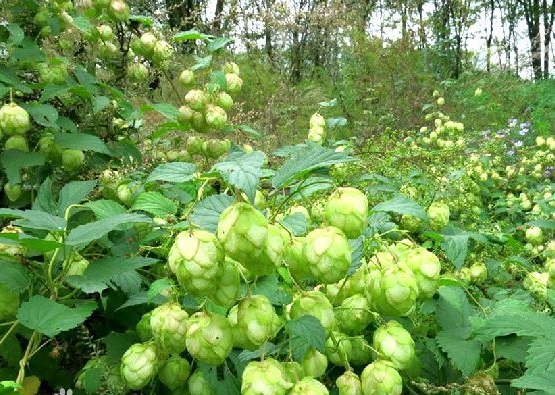
1. The source hops, also known as the hops (English common name hop), the snake hops, the hops, the wild hops, are the perennial climbing herbaceous plants of the genus Moraceae, dioecious, and flowery. Female ball spikes are referred to as hops.
2, the main chemical components of hops mainly contain tannic acid components, including chlorfenapyr (also known as hops ketone), avermectone A, isohumulones B, ketones, vesamedione, holding grass Enone-1, polyoxadol, an acid component including hopsone, polyhop ketone, and geranyl, oxalyl, linalool, hop alcohol, rutin, enamel, gall Alkali, etc.
3, health effects, stomach, phlegm and cough, soothe the nerves. For indigestion, insomnia, tuberculosis, pleurisy, leprosy.
(1) Antibacterial effect: Both hopsone and echinones in the female inflorescence of hop can inhibit the action of Gram-positive bacteria and tuberculosis. The hopsone has a good fat solubility, and its inhibitory effect against Gram-positive bacteria or tuberculosis is stronger than acesulfame. The strong inhibitory effect of hop extract on Mycobacterium tuberculosis is often used in the treatment of tuberculosis such as tuberculosis and lymphatic tuberculosis.
(2) Anti-tumor effect: A patent filed in the United States indicates that a product capable of inhibiting the growth of various tumors has been developed. The main functional component of this product is alpha acid and beta acid in hops. Studies have shown that this product is an effective drug for the treatment of malignant tumors such as breast cancer, lymphoma, cervical cancer and other cancer cell growth and metastasis. In particular, hexahydro-β acid not only has anti-cancer and anti-cancer functions, but also improves the dependence of cancer patients on anti-cancer drugs, and solves a major problem in current cancer treatment.
(3) Antioxidation: Studies have shown that hop extract has a good scavenging effect on superoxide anion radicals and has a certain antioxidant effect.
